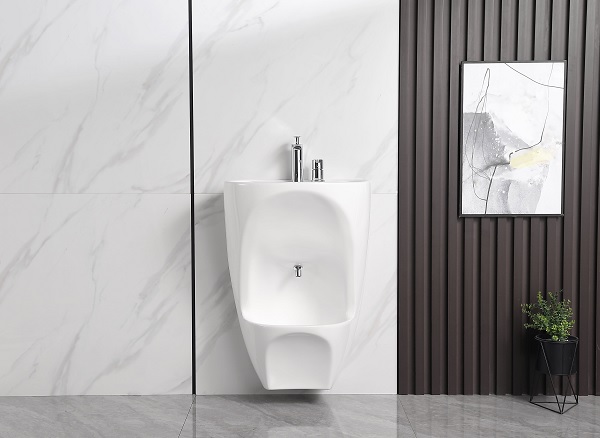
Ablution, the washing before prayer, is a deeply rooted practice in many religious traditions, especially within Islam. For centuries, the design of ablution spaces has served as more than just a functional necessity; it has reflected spiritual practices, culture, and advancements in architecture and technology.
As time progresses, one of the latest innovations in ablution design is the Dual Levels Wudu Basin in the UK—a new approach that reimagines the space where spiritual cleanliness meets modern comfort and efficiency. Have you ever wondered how a simple change in design could transform an everyday ritual?
Table of Contents
A Journey Through History: The Evolution of Ablution Spaces
Ablution spaces have evolved significantly over time. In the earliest days, water rituals occurred near natural springs or in the open air, where rivers, wells, or lakes provided the water needed for purification. As civilizations grew, the need for more organized and private spaces for ablution became clear. Early Islamic societies constructed wudu khanas, small, functional areas near mosques dedicated to washing before prayer.
These facilities were simple and served their purpose well, but as with any public space, there was room for improvement. Traditional ablution basins were designed for efficiency but only sometimes with comfort in mind. The basins were often low to the ground, requiring users to kneel or bend in awkward positions, which could be physically uncomfortable, especially for those with mobility challenges. Despite advances in plumbing and running water, the layout of ablution spaces largely remained unchanged for centuries.What if the design of these spaces could be updated to be more inclusive and comfortable while still maintaining their sacred function?
The Problem with Traditional Ablution Basins
As functional as they were, traditional wudu basins posed several challenges. For starters, the height and layout of the basins often didn’t accommodate people of all sizes or abilities. Bending to wash the feet or hands could be uncomfortable or even painful, particularly for older individuals or those with joint issues. The cramped nature of many traditional ablution spaces also meant the experience was often rushed or uncomfortable.
When space is tight, and the design isn’t flexible, performing the ritual can feel more like a chore than a peaceful moment of reflection and connection. There had to be a better way to address these issues—something that blends comfort, accessibility, and the sacredness of the ritual in a way that feels inclusive to everyone.
What if there was a way to enhance the experience of ablution, turning it from a physical
necessity into a ritual that feels peaceful and dignified?
The Dual Levels Wudu Basin: A Game-Changer for Ablution Spaces
Enter the Dual Levels Wudu Basin, an innovative design that addresses the challenges posed by traditional basins. This new approach offers two distinct levels for washing—one for the hands, face, and arms, and another for the feet—each thoughtfully designed to improve the ablution process’s comfort and functionality.
The upper level of the basin is set at a comfortable height for most users, allowing them to wash their hands, arms, and face easily without awkward bending. The lower level, designed specifically for washing the feet, offers greater flexibility. It allows users to wash while standing, sitting, or even sitting in a chair, depending on what’s most comfortable for them. This innovative dual-level structure provides accessibility and reduces the strain traditionally associated with performing wudu.
The design isn’t just practical; it transforms the experience of ablution. The extra space and ergonomic features make the ritual feel less rushed, more intentional, and more spiritually enriching.
Looking Ahead: The Future of Ablution Spaces
The Dual Levels Wudu Basin in the USA is just one example of how ablution spaces are evolving. As more attention is paid to their comfort, accessibility, and sustainability, it’s clear that the future holds exciting possibilities. This innovation is more than a physical upgrade; it’s a reflection of how modern design can enrich and elevate spiritual practices by making them more inclusive, comfortable, and efficient.
As society continues to move forward, we can expect even more innovations that consider the diverse needs of all users, blending tradition with modern advancements. The possibilities are vast, and as we continue to rethink how we design these important spaces, it will be interesting to see how the future of ablution rituals unfolds.
The evolution of ablution facilities reflects a broader movement toward creating spaces that are not only functional but also deeply connected to the needs of their users. With innovations like the Dual Levels Wudu Basin, the way we experience purification before prayer could soon be far more comfortable, accessible, and meaningful than ever before. Isn’t it exciting to think about how this approach might inspire future designs in places of worship and beyond?
To know more about the benefits of Wudu basin visit the website now!